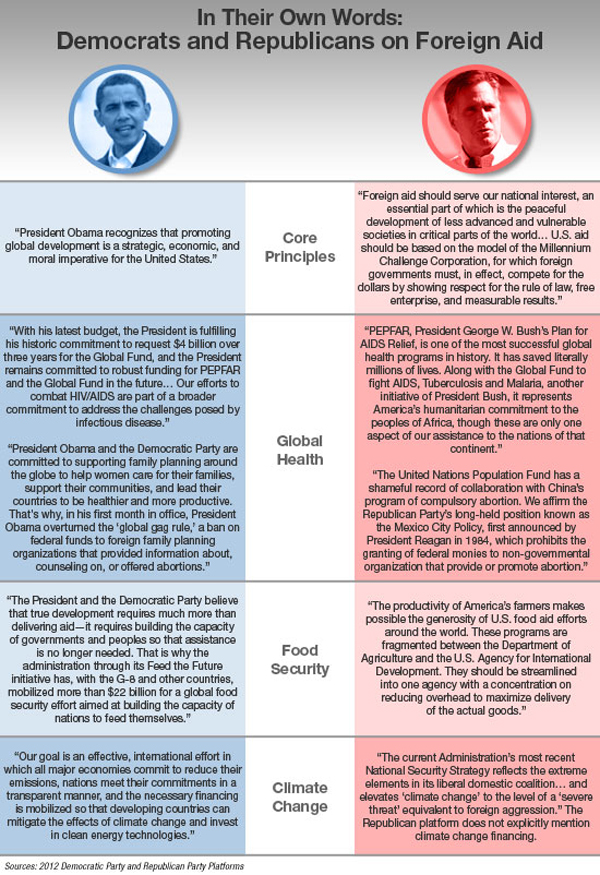
No, we do not spend 28% of the budget on aid. The actual figure is less than 0.7% (eg less than 1%).
There’s no shortage of polls that demonstrate just how uninformed people are on a range of everyday topics. I certainly might bump the stats against Americans myself if interviewed. But a curious myth that just won’t die is how much of the budget Americans think goes to foreign aid. With so many clarifications across news and edutainment sources, why do people hold on to the belief that foreign aid is bankrupting the country??
No, foreign aid is not all about altruism.
There must be hundreds of (google-able) essays on the objectives of foreign aid, and it isn’t about helping the poor. Perhaps people on the ground, like me for instance, are on this career track because we truly wish to make a difference. But the poverty industry wasn’t conceived nor even pretends to be anything less than a political tool and economic stimulus for the donor country.
I have to repost Dan Holliday’s response on Quora, to the question “What is the purpose of US foreign aid contributions?”
US foreign aid does a number of extraordinarily important things to a number of nations who are critical to the USA. Total US Government provided foreign aid (Military, Domestic, Economic, Etc) was about $53 billion in 2011. The payback of that aid is often times greater than the gift and even when not, the secondary and tertiary benefits are often times priceless:
- For starters, USAmerican Aid typically comes with “strings attached”. To be certain a good amount is just “hey, look at how nice we are” kind of aid, but Military aid (which was about $15 billion in 2011) is never, NEVER altruistic and such aid usually require said nation to either buy war materiels directly from the USA or — in other cases — just simplifies the process by having the federal government just buy the arms itself and ship them over on military transport.
- Often times, civilian aid works the same way and is in the form of “stuff” that the USA buys from our own companies and ships over, or requires that government to engage an American company and purchase a needed product.
- Many times a type of aid opens doors to American corporations for future usage as well. In the case of Nigeria, US aid helps grease the palms of the Nigerian government in favor of using USAmerican contractors to conduct business (without an express, written requirement to do so, that is).
- US Aid may oftentimes buy assistance for American citizens in that nation, alter the course of government laws or something similar in a way that benefits US interests. In the case of Peru back in the 1990’s, that nation conspicuously changed its policies so that no USAmerican-based religious missionaries were banned or even jailed upon entering. After a promise of aid to bail out the Peso, suddenly Mormons and other groups had access to the nation without harassment.
- In the case of Africa, US Aid has helped stabilize certain governments and allow the economies to grow in ways that benefit both the locals and US interests.
- Furthermore, as Africa increases in importance (industrialization and resource development), it the opening of doors and stabilization of governments has allowed foreign corporations to enter therein without fear of losing their sizable investment in whatever their unique industries are.
This all sound very Realpolitik, and it is. Don´t lie to yourself, if you’re from Europe or China or Japan, your nation does this. It’s in your nations interest to buy access and benefits for your citizens and corporations. Few nations do this to the equal of the USA (China, Russia, the UK and France probably do it as well as the US, though), but remember two things (a) it’s not a zero-sum game. What benefits the west in the case of Africa is helping pull a lot of people out of poverty and (b) even when it doesn’t, you only have the convenience of being pissy about the Machiavellian nature of foreign aid because that aid is contributing to the food on your table.
Now, don’t take my tone as advocacy for this. I’m a secular, atheist, humanist. I hated the Bush era policy of restricting away from abortions in the 2000’s and the Clinton & Bush era policies of defending American missionary services (which has seen wonderful results in Uganda). But, I’m also not so foolish as to deny their necessity and benefits in many cases.
Other posts on this topic:

